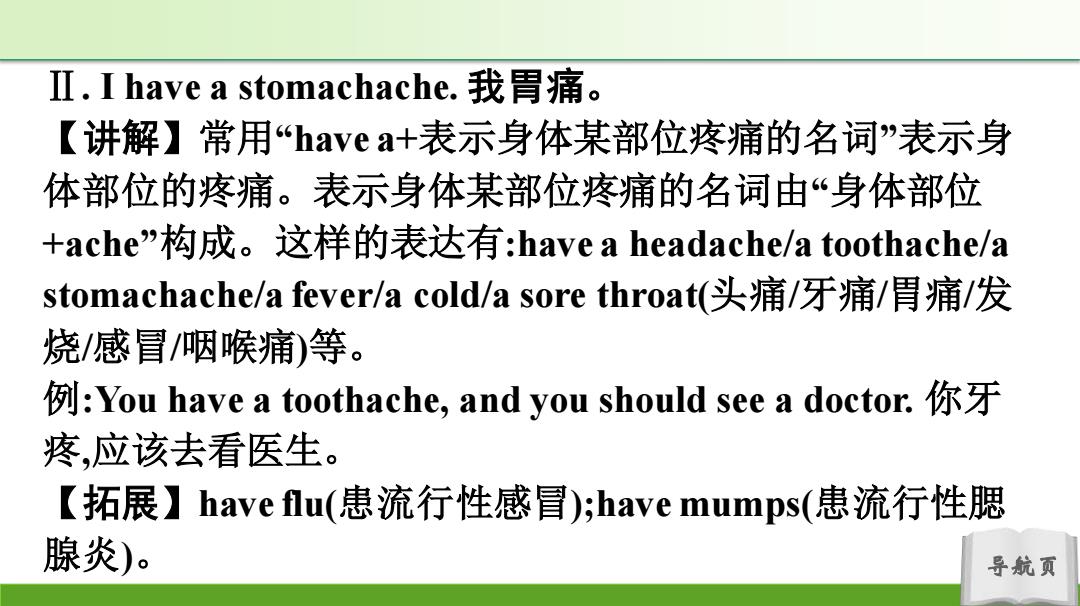
II.I have a stomachache.我胃痛。 【讲解】常用have a-+表示身体某部位疼痛的名词”表示身 体部位的疼痛。表示身体某部位疼痛的名词由“身体部位 +ache构成。这样的表达有:have a headache/a toothache/a stomachache/a fever/a cold/a sore throat(头痛/牙痛/胃痛/发 烧/感冒咽喉痛)等。 例:You have a toothache,and you should see a doctor.你牙 疼,应该去看医生。 【拓展】have flu(患流行性感冒);have mumps(患流行性腮 腺炎)。 导航页
导航页 Ⅱ. I have a stomachache. 我胃痛。 【讲解】常用“have a+表示身体某部位疼痛的名词”表示身 体部位的疼痛。表示身体某部位疼痛的名词由“身体部位 +ache”构成。这样的表达有:have a headache/a toothache/a stomachache/a fever/a cold/a sore throat(头痛/牙痛/胃痛/发 烧/感冒/咽喉痛)等。 例:You have a toothache, and you should see a doctor. 你牙 疼,应该去看医生。 【拓展】have flu(患流行性感冒);have mumps(患流行性腮 腺炎)

Ⅲ.I think you should lie down and rest..我想你应该躺下休 息。 【讲解】(1)should是情态动词,可以表示建议,意思是“应该; 应当;可以”,其否定形式是shouldn't,意思是“不应该”。 例:You should stop smoking.你应该戒烟。 You shouldn't leave your dog alone in the house.你不应该把 你的小狗独自留在家里。 导航页
导航页 Ⅲ. I think you should lie down and rest. 我想你应该躺下休 息。 【讲解】(1)should是情态动词,可以表示建议,意思是“应该; 应当;可以”,其否定形式是shouldn't,意思是“不应该” 。 例:You should stop smoking. 你应该戒烟。 You shouldn't leave your dog alone in the house. 你不应该把 你的小狗独自留在家里